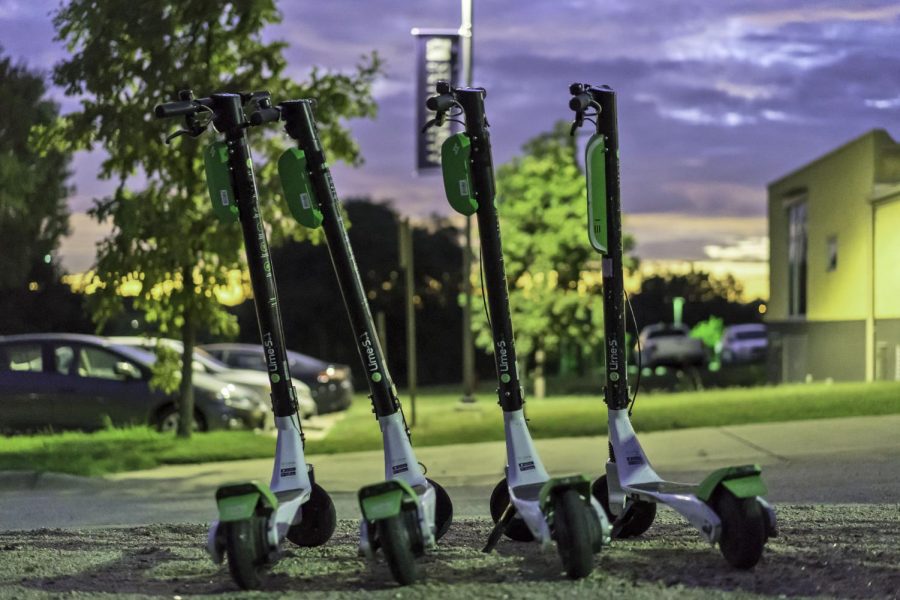Motorized Scooters Banned on Campus
Photo by Kenny Phipps / Hilltop Views
“As of right now, the only dockless mobility service that is allowed on campus is the Pace bikes,” according to the head of University Operations, Scott Burnotes.
They’re everywhere.
This year, Austin has seen dockless mobility take over the inner city area. There are currently seven dockless mobility service companies that are operating in Austin’s downtown area. The services include bicycles and scooters, some of which can be found around campus.
Although these scooters may seem like an efficient way to get to class, they are not allowed on St. Edward’s campus, according to the head of University Operations, Scott Burnotes.
“As of right now, the only dockless mobility service that is allowed on campus is the Pace bikes,” says Burnotes, while referring to the new white and purple bikes that have replaced the orange Spin bikes from last year.
Although you can still find scooters around campus, the University Police Department intends to let students know that motorized scooters are not allowed on campus for a number of reasons. One reason is that anything with a motor cannot be driven on sidewalks or on curbs.
The problems that the university has been facing reflect the larger problems that Austin is facing. The City of Austin has only recently began tackling the legal issues involved with dockless mobility. Just this past April, the Austin City Council voted to strictly regulate dockless mobility programs, according to the Austin American Statesman. Up until Aug. 31, the City of Austin conducted a survey asking for the public’s opinion on dockless mobility in the city. The responses are still being reviewed.
St. Edward’s isn’t the only school experiencing issues with motorized scooters. The University of Texas has started imposing a $150 fine when scooters are left on campus. When asked about scooters coming onto St. Edward’s campus, Burnotes says, “It becomes a very logistical challenge when they’re being left everywhere. We haven’t gone that route yet, but we’re monitoring how this will all go.”
After a trial with Spin bikes last school year, the university evaluated the statistics of the number of students who utilized the bikes and the benefits of the program. From January to May, a total of 8,478 rides were taken on campus and a total of 9940.40 Lbs of CO2 was saved because of the bikes.
Because dockless mobility is a new transportation method, the city is still monitoring the benefits and dangers that come with this program, especially the motorized scooters. When asked about the future of motorized scooters, Burnotes says, “The program that the city currently has with all dockless mobility is still labeled as a pilot program, so I think there’s gonna be a lot of lessons learned from what the city determines and how dockless mobility will be able to operate throughout the city.”







